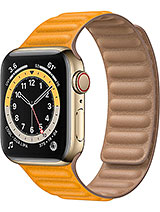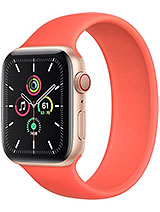Why doctors are worried about the Apple Watch EKG By Verge Science
(electronic music) - If you own one of the newer Apple Watches, the Series 4, it has this dormant feature that was flipped on last year. This watch can now perform an electrocardiogram test, or EKG. It measures the electrical signals that your heart uses to regulate your heartbeat. The point is to detect signs of atrial fibrillation, which is a form of irregular heartbeat that could cause a stroke or heart failure. This is actually a big step for Apple. You might think of this watch as a notification machine for fitness buffs who want to obsessively track every single step that they take, but with EKG, it's trying to become something different.
Not just a fitness tracker, but now a health monitor, but that change, it opens up a host of new questions. - Do doctors think it's a good idea? Are people gonna use this the right way? Are we just giving people all this information that they don't even understand? - Oh, we asked our science reporter Angela to tackle those big scary questions for us. - Hey Deeder. - And later, we're going to fire up a more professional EKG at a medical lab, but before all that, here's what this new EKG feature actually looks like. (soft music) The EKG process itself is pretty simple.
There are two sensors on the watch, one on the back and one on the crown. When you put your finger on the crown, you're completing a circuit from your finger to your heart and back to your wrist. That way, the watch can measure your heart's electrical pulses. After 30 seconds, it'll tell you if the upper or lower chambers of your heart are out of sync and if they are, it's time to go see a doctor. In my case, I'm seeing a sinus rhythm and that should mean no AFib.
but I'm gonna go see a doctor anyway. (soft music) We're here at the University of California San Francisco to get an expert opinion. See, there's already been a little bit of blow back about this new EKG feature. Some critics have argued that it could lead to false positives or become a self diagnosis machine, so we're here to do what we expect a lot of Apple Watch owners are gonna do which is go ask a doctor about their results. Dr.
Greg Marcus is a specialist in heart arrhythmias at USFS. First, he and medical assistant Vanessa Mallet hooked me up to a lab grade EKG. It provides 12 different readings of heart activity instead of just the single snapshot that you get on an Apple Watch. - And it's just already going. You have what's called a sinus arrhythmia, which is a sign of good health.
- Dr. Marcus walked us through some of the differences between the Apple Watch EKG and this one. Basically, this thing will give you lots more data to help pinpoint issues that you might suspect based on the watch's readout. It's meant to be a two step process. The watch flags a possible problem and the doctor investigates further.
- So if there's an early beat for example, the 12 lead EKG will give us more information as to exactly where that's coming from. - How that two step process will work in practice? It's not clear yet. The feature is too new. Right now Dr. Marcus isn't really sure what to make of it.
- We still don't know yet how frequently that Apple Watch by itself will be sufficient versus how often physicians will not be able, not feel confident in that reading and feel that some additional monitoring needs to be done. As a researcher, it's fascinating and a great opportunity. As a clinician, it's worrisome. - The worrisome thing, the precision of the Apple Watch is only part of the story. In theory, the benefit of the Apple Watch is that it'll catch these lurking heart problems that you would otherwise never know about.
But in fact, cardiologists don't recommend using it to screen for heart problem unless you're already at risk. - My name's Seth Landefeld. I'm professor of medicine and chair of the Department of Medicine at University of Alabama at Birmingham. - Dr. Landefeld is a member of the US Preventive Services task force.
They evaluate various screening tests to see if the benefits outweigh the risks. Recently, they looked at whether EKG screening would help in people who are healthy and otherwise at low risk. They looked at it for cardiovascular disease, bad stuff like heart attack or stroke. - There's no evidence there that the benefits outweigh the harms and so therefore we recommended against using ECG screening for people at low risk for cardiovascular disease. - And for AFib, the condition Apple Watch screens for, similar situation.
There's just not much evidence that EKGs are worth it if you don't already have these other symptoms but why not just do it anyway to be safe? Because there's a risk of a false positive. EKG itself is safe, but in an absolute worst case scenario, there could be a false positive that leads to a treatment that's unnecessary and unsafe. - Well if it led to further tests that somebody said, jee, it looks like you should undergo bypass surgery and somebody underwent bypass surgery, we know that the average mortality from bypass surgery is one or two percent. - There's also the issue of the users. AFib studies focus on people 65 and older because they're the people who are most likely to have heart problems.
They're not the people most likely to have Apple Watches, which makes Dr. Marcus worried that now all the wrong people have their own EKGs. - The individuals that tend to purchase these Apple Watches may be those who are already health conscious, tend to be fit, tend to probably be quite healthy, whereas the people that really probably have the most to benefit from atrial fibrillation screening will tend to be the older individuals who may be less tech savvy, those who aren't as concerned about their health. - All this means that EKG might be harming all these low risk people with all this data that might lead them to self diagnose and get freaked out for no good reason. For them, all this might start with an irregular heartbeat alert.
- They check their EKG, they don't actually have atrial fibrillation, they have an irregular rhythm for some other reason that's totally benign. - In reality, they're totally okay, but now they've gotten the scary notification that something might be wrong and they feel nervous. - They make an appointment with me, spend time with me and our nurses who otherwise could be helping people that clearly need help. - Again, the Apple Watch is new, but overtime, false flags put at strain to our entire healthcare system. It's a classic case of data overload.
- So with all of that in mind, what should a healthy person use this feature for? According to Dr. Marcus, maybe nothing. - If someone is younger than age 65, they don't have high blood pressure, diabetes, they've never had a stroke, they don't have heart failure, they don't have other problems with their arteries. In general, I would say ignore it in the absence of symptoms. - In the end, there's one thing that all doctors can agree on.
If you're concerned about your heart health, be good to your heart. Don't smoke, get plenty of exercise, and keep an eye on your blood pressure. You don't need an EKG feature on your Apple Watch to do any of that and your doctor will love you for it. - See how your rhythm speeds up a little bit and then it slows down? People who have more of this sort of variability tend to live longer. - Oh really? Okay, well great.
Source : Verge Science











![Identify & Resolve Battery Draining Issues on Android [How-To]](https://img.youtube.com/vi/ibo6XvuEM54/maxresdefault.jpg )



![Xiaomi Redmi 9A Review | ENTRY LEVEL KILLER? [English Subtitles]](https://img.youtube.com/vi/ummXmCgKdo4/maxresdefault.jpg )










